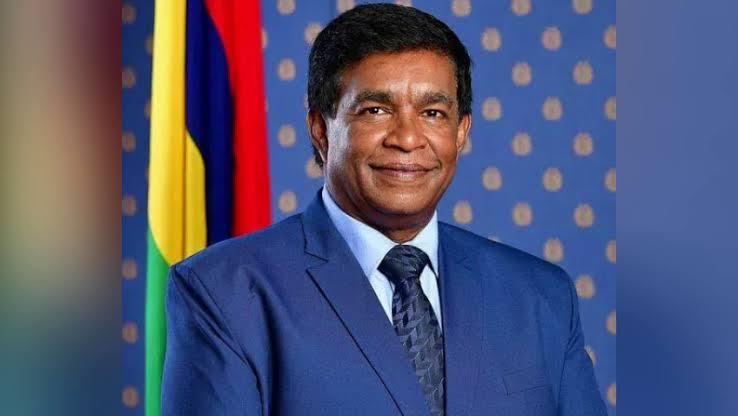Nigeria has shown a modicum of commitment to a sustainable energy transition by announcing carbon neutrality by 2060 at COP26. The Energy Transition Plan (ETP) focuses on shifting from fossil fuels to renewables like wind and solar. To kickstart implementation, Nigeria aims to secure at least $10 billion in financing by COP27. Concerns about transparency and implementation have been raised, highlighting the need for effective execution. The transition creates investment opportunities, particularly in the solar and hydrogen industries.
Nigeria’s commitment aligns with global efforts, reducing carbon emissions by 2030 and contributing to sustainable development. The plan’s success requires complementary actions and support for low-carbon solutions. It was in line with this zest that Wärtsilä Energy, represented by Managing Director Wale Yusuff, took centre stage at the 2023 Energy Transition Forum held in Abuja and Lagos last week. This gathering of Nigeria’s energy experts, both from the private and public sectors, laid the groundwork for a journey towards enduring decarbonisation and widespread access to clean energy.
Wale Yusuff, in his address to senior representatives, dispelled the notion that a renewable energy-based power system is inherently expensive and unreliable. Backed by advanced studies, he asserted that not only is decarbonising Nigeria feasible, but it can also be achieved in a manner that reduces the overall cost of electricity. This revelation challenges the prevailing perception, setting the stage for a lasting shift in Nigeria’s energy paradigm.
Yusuff highlighted the enduring role of various technologies in achieving a net-zero power system. From renewables and energy storage to balancing power plants and sustainable fuels like green hydrogen, ammonia, and methanol, these technologies form the enduring foundation of Wärtsilä’sstrategy. The integration of these elements, coupled with smart planning and transparent government regulations, is envisioned to deliver enduringly reliable, low-cost, and clean power to the Nigerian populace.
Recognising the increasing share of wind and solar in power generation, Yusuff emphasised the enduring importance of grid flexibility in Nigeria’s decarbonisation efforts. The intermittent nature of renewables necessitates the enduring incorporation of balancing power technologies, such as energy storage and engine power plants, to ensure a stable and reliable power supply. This strategic approach addresses the enduring challenges posed by the volatility of renewable energy sources.
To meet the surging electricity demand in Nigeria, Yusuff underscored the enduring urgency of expanding and modernising the country’s power infrastructure. Bridging the infrastructure gap, according to him, requires enduring collaboration between financing institutions, both multilateral and local, government planning, and enduring private capital involvement. This multi-faceted approach is seen as enduringly essential for achieving the ambitious electrification goals set by the nation.
Wärtsilä’s Roadmap for a Renewable Nigeria:
Referencing a report released by Wärtsilä recently, Yusuff presented an enduringly detailed roadmap outlining how Nigeria can transition to a 100% renewable energy power system by 2060. Leveraging Nigeria’s abundant solar energy resources and untapped gas reserves, the report suggests that the country possesses all the necessary elements to accomplish its electrification goals. Gas, in particular, emerges as a key transitional energy source, requiring enduringly rapid infrastructure development to support flexible engine power plants.
Yusuff highlighted the enduring versatility of engine power plants as a crucial component of Nigeria’s decarbonisation strategy. These power plants, capable of running on various fuels from natural gas to green hydrogen, ammonia, and methanol, are positioned as “future-proof” technology. The ability to adapt to evolving fuel sources positions engine power plants as an ideal foundation for an enduringly carbon-neutral power system.
He drew attention to the enduring emergence of future fuels in Africa, citing examples of large-scale green hydrogen and ammonia plants being developed in South Africa. Wärtsilä’sengine power plants, set to function on methanol by the end of this year, green ammonia by next year, and green hydrogen by 2026, align with the continent’s transition towards enduringly sustainable and environmentally friendly energy sources.
Wärtsilä Energy’s role in spearheading Nigeria’s enduring decarbonisation journey reflects a commitment to sustainable energy solutions. By leveraging market-leading technologies and power system modelling expertise, Wärtsilä aims to facilitate the transition to a 100% renewable energy future. The combination of strategic planning, enduring grid flexibility, and the versatility of engine power plants positions Nigeria on the path to achieving universal and enduringly reliable access to low-cost, clean power. As the nation addresses its infrastructure challenges and embraces future fuels, Wärtsilä stands as a key partner in Nigeria’s quest for a sustainable and decarbonised energy landscape.
King Richard is the Head of Editorial at African Leadership Magazine, UK, and can be reached via king.richards@africanleadership.co.uk


